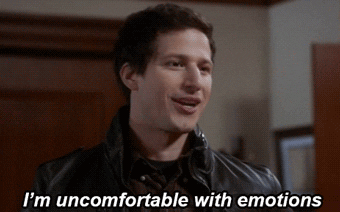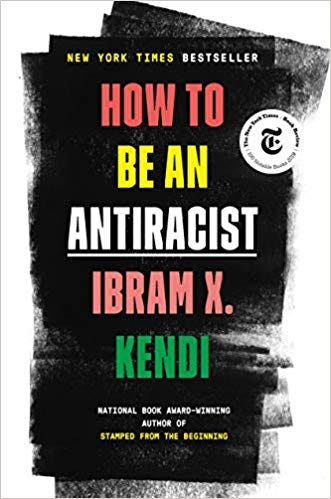Christian college and unexamined whiteness.
There's no good reason to avoid talking about it. So let's try.
It’s the first free edition of The Post-Evangelical Post! Let’s get started.

Brief preface: I’ll admit, as I started this I knew it was going to use a specific example to examine broader issues within white evangelicalism; what resulted was the essay below. It is a singular newsletter essay and not comprehensive.
Last week, Potawatomi Christian author Kaitlin Curtice spoke at Baylor University during a chapel service. During service, she was interrupted by a man—as she was saying “the work of telling women that we do not matter as much as men do in society is dehumanizing. It is damaging to the soul”—thereby proving her point. Later, a conservative student group put out a statement condemning the Ms. Curtice’s speech, falsely claiming she had “prayed to Mother Mystery.”
This story by Emily McFarlan Miller at RNS sums up the events, as well as the reaction to it. Baylor has not apologized to Katilin Curtice as of this writing. As noted in the RNS article, faculty and alums have issued apologies, and support for Curtice has been poured out on social media.
I do want to highlight one response here, because it is an interesting (read: sad) comparison of experiences by people who have given “controversial” chapels:


Katilin Curtice deserved better. The words she spoke, and which a rude man so vehemently disagreed with, are true. She was disrespected.
Now to be certain, BIPOC women do not need white men like me to be their saviors or defenders. Ms. Curtice has already spoken well to the situation on Twitter.
My remaining comments are addressed primarily to the young white students at Baylor and other schools as they begin their own lifelong engagement with politics and religion.
What strikes me about this event is how it feels as if it could have happened on my Christian college campus over 15 years ago. The vocabulary, posture, and hubris of the student group’s statement exhibits that very little has changed in the message of conservative evangelical groups like this: they remain politically and theologically conservative, with expectations of total adherence to their interpretation of history and Christianity.
I am an Old Millennial. (I promise that my next sentence will indicate why this fact is important.) During my first full week of college, 9/11 occurred, and the event changed the tenor of my college experience. I had enrolled at a Christian school with the intent of becoming a pastor, but my mother wisely counseled me to get a degree in something besides ministry (this was incredible advice). I chose to double-major in history and biblical literature, and I would spend much of the next four years being torn between the conflict of what I was being taught in history courses and what I was learning by studying biblical Greek.
In my history courses, I was being taught the “biblical Christian worldview,” which conveniently aligned almost perfectly with the modern Republican Party. Capitalism, colonialism, and American exceptionalism. The Puritans and their theocratic society were valorized. Meanwhile, through my religion courses I was learning about the development of the New Testament, and about a Christ who gave up the privilege of godhood in order to serve people.
This typical sort of college-evangelical-identity-crisis was happening during the lead-up to the war in Iraq and was accelerated by my anxious disposition. I spent many emo days in the prayer chapel, staring at a sculpture of Jesus in Gethsemane, in my own anguish. I was clearly going through several phases at once.
I make light because I am uncomfortable with emotion, but in reality it was very difficult. I was torn between two visions: on one, a white Jesus who looked like me or at least agreed with me and was pretty chill with anything war-related so long as babies weren’t being killed back home; on the other, was someone who had earned the title Prince of Peace, fed the hungry, and healed the sick.
Ultimately, I chose the more “liberal” version of Jesus. Perhaps ironically, it was studying the Scriptures at a conservative Christian college that made me take the ethics of Jesus seriously and become politically liberal. (My friends prayed for me when I voted for John Kerry.)
I bring up my college experience because I want to illustrate for today’s students that while things seem intense now (and they are), they have always been intense. In the early 2000s we had a Republican president with evangelical bona-fides lie to the American public in order to pursue a war abroad; in the Trump era, we have a Republican president who lies about everything, has no bona-fides, but maintains the highest support ever amongst evangelicals because he’s so damn good at culture-warring.

There is something clearly compelling about things like the “biblical Christian worldview” I was taught. Similar things are taught by writers like Wayne Grudem. They are internally consistent intellectual frameworks, and by the nature of their content, are contrarian to the broadly-perceived “liberal secular world.” This attracts a certain type of person who wants certainty in an uncertain world. This person is often white, and the uncertainty they feel - even if they can’t quite express it - intimately involves their whiteness and a vague sense that it is “threatened.”
The trouble with such “biblical Christian worldviews” are that they are inherently dangerous to those that they exclude, minimize, and other: women, people of color, queer people, trans people. The enforcement of such dogged dogma during college is an added burden, since it’s supposed to be a time of discovery and exploration.
If you’re in college now and are hearing political and social messages that you can’t reconcile with the words and life of Christ let alone your own conscience - keep questioning, and pursue those convictions. Listen to your heart and your mind. Whether it begins as cognitive or emotional dissonance (or both - your emotions are valid!), that discomfort and dissonance means something significant. Pursue it. The questions will lead you uncomfortable places, but the delightful thing is that many people have gone before you. There are paths and they are well-trodden. This newsletter will focus on those paths.
White evangelicals are told they are part of a Great Story, and their life is to be in service to that story through faith and works. Too much of the story white evangelicals are told obfuscates the truth of history and the lived experience of so many marginalized people (this is being far too generous, tbh). The Great Story white evangelicals are truly called to in our era of history is to confront our own whiteness, reckon with the realities of white supremacy, and work toward justice. I wrote about this in an old essay called “The Most Christlike Thing for a Cis/Hetero/White Man to Do With His Power is Abdicate It.”
The world does not need white saviors. It does, however, need white American Christians to take up the work of educating themselves about the history of racism in our country and the world, and the role white evangelicalism has played in perpetuating unjust systems and the toxic beliefs that motivate these systems. Summing up that work would make an already-long newsletter interminable. But it starts by not interrupting women as they speak and being willing to listen. That’s just the start. And we’ll step in it (I’m including myself, and even this essay, in this), over and over, as we learn things by making mistakes…especially as white men. Things that are obvious and/or the lived experience of others will shock you; our blind spots have blind spots. We’ll learn language to articulate things better, because language is important. We shouldn’t expect to be coddled or given accolades for doing this work, or seek out the title of being an “ally.” We just need to do it, and listen to the voices that have been clamoring for centuries, to the people and voices that come and speak at our chapels, and challenge us to see the world as it is and then make it better.
The work is never perfect and never complete. But it must be done. One way to start is by pre-ordering Kaitlin Curtice’s book.
(Once I publish this, it is published. I cannot recall the emails. If I have overlooked something, or could have phrased something better, I welcome feedback. You can email me at contact@exvangelicalpodcast.com, or respond to the open thread/comments related to this post.)
Starting the Work
Here are some people and works that have helped me along the way:
Tori Douglass develops anti-racist educational materials for white audiences through White Homework. I talked to Tori an on episode of Exvangelical.
Follow Andre Henry and Hope & Hard Pills.
Read these books:

I spoke with the author, Austin Channing Brown, on Exvangelical.

Books on My Own To-Read List:



![Raise Your Voice: Why We Stay Silent and How to Speak Up by [Khang, Kathy] Raise Your Voice: Why We Stay Silent and How to Speak Up by [Khang, Kathy]](https://substackcdn.com/image/fetch/$s_!kmcc!,w_1456,c_limit,f_auto,q_auto:good,fl_progressive:steep/https%3A%2F%2Fbucketeer-e05bbc84-baa3-437e-9518-adb32be77984.s3.amazonaws.com%2Fpublic%2Fimages%2F98bbd1f0-ad64-4a74-91af-4c4aa4417e95_333x500.jpeg)
…and so many more.
Trump Corner
One key attraction white evangelicals have to Trump is that he is very good at culture-warring. Last night, he lambasted the movie Parasite winning the Academy Award for Best Picture at a rally, on the grounds that it was a foreign film.
Meanwhile, in the SBC, Russell Moore and the Ethics & Religious Liberty Commission will be subject to a task force review over concerns that Moore isn’t cozy enough with the president and may even - gasp! - criticize him lightly.
Good News
A charismatic church in the Assemblies of God denomination became fully-affirming of LGBTQ+ people, going so far as to leave their denomination to stand in solidarity with queer people. This is huge.
If you appreciate this post, hit the ♥ on it; it’s like Reddit upvoting, and makes it visible on substack.com’s homepage.
You may also enjoy my podcast Exvangelical.
Consider subscribing to the paid version of this newsletter by clicking the link below.





